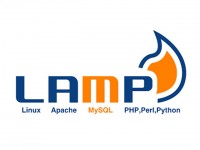| Random Thoughts |
"Sometimes the road less traveled is less traveled for a reason."
-Jerry Seinfeld |
|
"We were one of Starsnsites first customers, and after nearly a decade of working together, we have developed a trust with our Web Master."
|
| Mark Lawson |
|
Web Hosting & Web Technology Explained
|
 Web hosting is an online storage service for information, images, video, or any content accessible through the Web on Internet servers.
A Web hosting service is necessary to show your Web site content to visitors who type in your domain name.
Turn on the LAMP. For the entire life of the World Wide Web, the backbone that's kept it upright are the tools of Linux.
Linux, Apache, MySQL, PHP, Perl, and Python — collectively known as LAMP — comprise more than two-thirds of the servers, databases, and scripting languages on the web today.
|
|
The acronym LAMP refers to a solution stack of software, usually free and open source software, used to run dynamic Web sites or servers. The original expansion is as follows:
- Linux, referring to the operating system;
- Apache, the web server;
- MySQL, the database management system (or database server);
- Perl, PHP or Python, which are scripting languages.
The combination of these technologies is used primarily to define a web server infrastructure, define a programming paradigm of developing software, and establish a software distribution package.
Though the originators of these open source programs did not design them all to work specifically with each other, the combination has become very popular.
What's the attraction to LAMP tools for developers around the world? In part, it's the open source underpinnings of LAMP tools. They're freely available, easily configured, and very robust. They're in a constant state of development and improvement, adding features suggested by the user community at large. They can be easily deployed, fully configured, and maintained with a minimal amount of effort. In short, the LAMP tool kit allows developers to do what they do best: develop, without spending a disproportionate amount of time in the administrative details.
The scripting component of the LAMP stack has its origins in the CGI web interfaces that became popular in the early 1990s. This technology allows the user of a web browser to execute a program on the web server, and to thereby receive dynamic as well as static content. Programmers used scripting languages with these programs because of their ability to manipulate text streams easily and efficiently, even when they originate from disparate sources. For this reason system designers often referred to such scripting systems as glue languages. |
|
|
Web hosting is a service that allows you to post your web pages, also known as HTML files, to the Internet. Websites are stored (hosted) on a special computer called a server.
This server allows Internet users connected anywhere to reach your site when they put in your domain address.
Web hosting providers are often confused with ISPs (Internet Service Providers). An Internet service provider provides Internet access to a user via dial-up, broadband, cable, DSL, or wireless connections.
An Internet service provider focuses on the connectivity and accessibility of the Internet; while a web hosting provider focuses more on the computers that house, maintain, and serve up the website through the Internet.
Starsnsites proudly recommends Koi Hosting, and we will be glad to assist you in choosing the plan that is right for you.
Currently there are three basic types of hosting companies, all at various levels of performance and price.
- Private Servers (A great solution if you have the budget and the experience.)
- Shared Hosting with thousands of clients (The better solution if you don't mind slower performance at times.)
- Economy Hosting with hundreds of thousands of websites. (The last alternative if your budget is minimal, and you have extra time to speak to a phone bank in the Middle East.)
|
|
|
Web hosting can be compared to telephone service. If you have a phone, but do not hook up local and long distance phone service through a phone company, the actual phone itself won’t function the way it was intended. Likewise, you may have website files, but until you upload them to a web server, your files will not be viewable via the Internet.
A server dedicated to a website and email with a direct connection to a stable Internet backbone is required to host a website. Web hosting companies exist because these requirements are often out of reach for the average business and general users of the Internet. By investing in equipment and network architecture, a web hosting company specializes in making websites available quickly through the Internet 24 hours a day, 7 days a week. Unless you have the knowledge and resources it takes to run a web server and mail server in-house, you will probably require the services of a web hosting company. |
|
|
Choosing web hosting service is essentially renting space on a server, which can be like renting an apartment. For a monthly fee, you reside in that apartment, and all maintenance is the responsibility of the property owner.
As a renter, you have access to certain amenities that would otherwise require special knowledge and be a costly investment. In web hosting, you would buy space on the server for your website files. The files are secure and only you can update, add, and remove files.
The amenities are considered the disk space, data transfer, POP3 email accounts, technical support, mailing lists, ecommerce capability, design tools, web-based email, FTP sub-accounts, etc. With the purchase of a web hosting plan, you have purchased the service and expertise of the web hosting company - the technical skills, network and system architecture, web servers, and applications.
Important criteria should be taken into account when you are looking for a hosting provider. Look upon your hosting as an investment rather than a cost, especially if your site is significant to your business or livelihood. A checklist is a good way to sort out the host that will provide the type of hosting you are looking for. |
|
|
Now, that you understand web hosting service, it’s important to understand different types of web hosting platforms. The company we recommend, NetFronts, offers both Windows and Linux platforms.
Many users automatically assume they need a Windows platform since that is the program they run on their PC.
Most websites are hosted on a Linux operating system because your web hosting platform is completely unrelated to the Windows program that runs on your own computer. We have laid out a table below to see the differences between Windows Hosting and Linux Hosting.
| Windows | Linux |
|
The Windows web hosting platform was developed by Microsoft, the creator of the popular Word and Excel programs. Its strength lies in its compatibility.
A Windows programmer can leverage existing knowledge and easily incorporate COM objects and data access directly into web applications. Microsoft Access and SQL Server are very easy to manipulate using ASP.
The price to run Windows is the major drawback as licensing fees are exorbitant.
|
Linux evolved from Unix and is one of the most popular operating systems on the Internet. Linux is considered more stable and less expensive to maintain because most of the software the operating system uses is open source.
In theory, open source software is a more useful and flawless end product because it was created through the collective work of many programmers all over the world.
In case you were wondering, this does not mean that your files are not secure and protected; it just means that the software that runs the computer was developed by many contributing programmers. Popular open source technologies you may be familiar with include PHP, MySQL, Python, and XML.
|
|
|
Synopsis:This page provides a simple introduction to web hosting and Web site development technologies.
|



